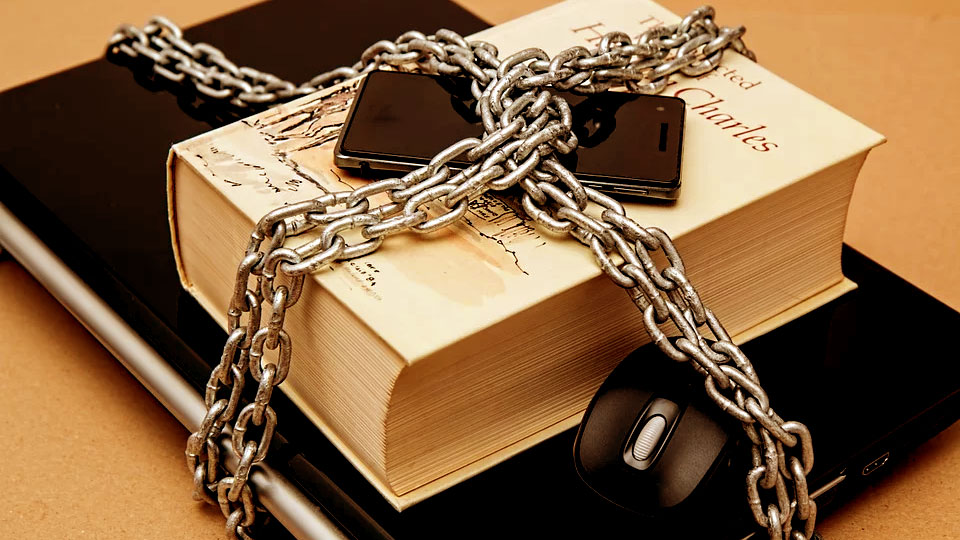
In the wake of HP’s recent announcement that it will include ExpressVPN’s Windows app on all of its new Spectre x360 desktop and laptop series, consumers are paying more attention to the need for VPNs, a now essential digital tool.
But while many of us run VPNs as standard on our larger devices, we often forget to transfer our subscription over to our smartphones. With that in mind, here are 10 reasons why you need a good, paid VPN service on your phone.
* Note that we’ve specified paid here. Unfortunately, free VPN providers and apps are notorious for gleaning vital customer data and selling it to data brokers (yes, that really is a thing) and third-party marketing companies. It sounds completely against the very tenets of what a VPN company should stand for, and it is, yet this happens regularly.
10. BBC iPlayer has really good shows
Ok, ok, but since we’re starting at number 10, we thought we could be a little frivolous first! It’s a well-known fact that train and bus rides are boring. One plus is that most of these travel services include free public Wifi, once connected and with your VPN turned on and linked to a UK server, BBC iPlayer will help you make the most of those long, arduous travel hours.
And if the political situation is getting you down, BBC’s popular ‘Mock the Week’ and ‘Have I Got News for You’ are sure to put a pep in your step and sate your need for some quality satire.
9. Location-based pricing
If you ever use location services, and let’s be honest, most of us do, your location could be affecting the prices you see when you’re making purchases on your phone. Thanks to services such as PayPal’s one-touch and Apple Pay, it’s simpler and faster to use a mobile for payment.
But did you know that where you are in the physical world affects how much you pay in the digital realm? Booking a flight to a cheap and cheerful location? Switch on your VPN and connect to that destination, you might be amazed by the price difference.
8. Secure messages
Some of the popular messaging services, including WhatsApp and Viber, are encrypted, but many others are not. Unencrypted messages run the risk of being intercepted and read. With a VPN switched on, your messages stay the way they ought to be — private.
7. VoIP Matters
Voice over Internet Protocol, aka VoIP, was revolutionary technology when it reached us in the heady first days of Skype. Now, it’s a standard way of conducting voice calls at a mere fraction of the cost of traditional phone lines.
The benefit comes with a downside though, VoIP can easy be collected and analyzed in bulk, putting your private conversations up for grabs. VPNs encrypt your calls effectively stopping snoops in their tracks. Even if you were only calling your partner to check if you needed to buy bread, it’s really nobody else’s business.
6. Government censorship
We live in the age of information, the entire sum of the world’s collective knowledge is at our fingertips. Imagine not being able to access it. The reality for many people is that their governments block and hide certain content.
Without access to a full suite of information and opinions, the internet risks becoming yet another tool for propaganda. Here’s a surprising example, the crowd-sourced and managed encyclopedia Wikipedia has been blocked in Turkey since 2017 and China followed suit in April 2019.
VPNs allow users to circumvent government restrictions.
5. Public Wifi is the pits
We all use it, but it’s risky. Switching on your smartphone’s VPN is the best way to avoid phishing scams, dodgy networks, and malicious malware.
4. Google tracks you
It acts all sunshine and roses in the public sphere but the truth of the matter is that Google, the world’s most popular search engine and owner of Gmail, one of the most used email servers, tracks what you do online.
Thankfully, in 2017 the company promised it would stop SCANNING YOUR INBOX to see which ads fit you best. Gee, thanks, Google. VPNs are one of the only ways to stop our Silicon Valley friends knowing exactly where you are, what you’re listening to, and what you’re thinking of buying.
3. Keep your searches private
Love the company phone your job provides but hate the job itself? If so, you’re probably tempted to sneak a peek at job ads on your commute. Doing so hands your search history straight to your curious boss’ desk. A less than ideal situation that can be avoided by using a VPN to mask any online activity.
2. Avoid restrictions
Certain networks, such as those in school and public libraries inhibit your ability to research certain phrases. That’s fine if you’re researching 18th-century agriculture but less than ideal if you’re working on, for example, breast cancer. The chances are that words such as ‘breast’ are locked down and flagged as related to pornographic content.
1. Keep your personal data secure
This is the primary reason a high-quality VPN should be in use on your phone at all times. Hackers and cybercriminals are increasingly sophisticated and thwarting them is a matter of encryption, exactly what a VPN provides. As HP’s partnership with ExpressVPN shows, VPNs are now standard tools, not optional.
 LG Q Stylo+
LG Q Stylo+  Samsung Galaxy S7
Samsung Galaxy S7  LG Eclypse 4G
LG Eclypse 4G  Samsung Wave
Samsung Wave  Samsung Galaxy A14
Samsung Galaxy A14  Samsung Galaxy A31
Samsung Galaxy A31 

